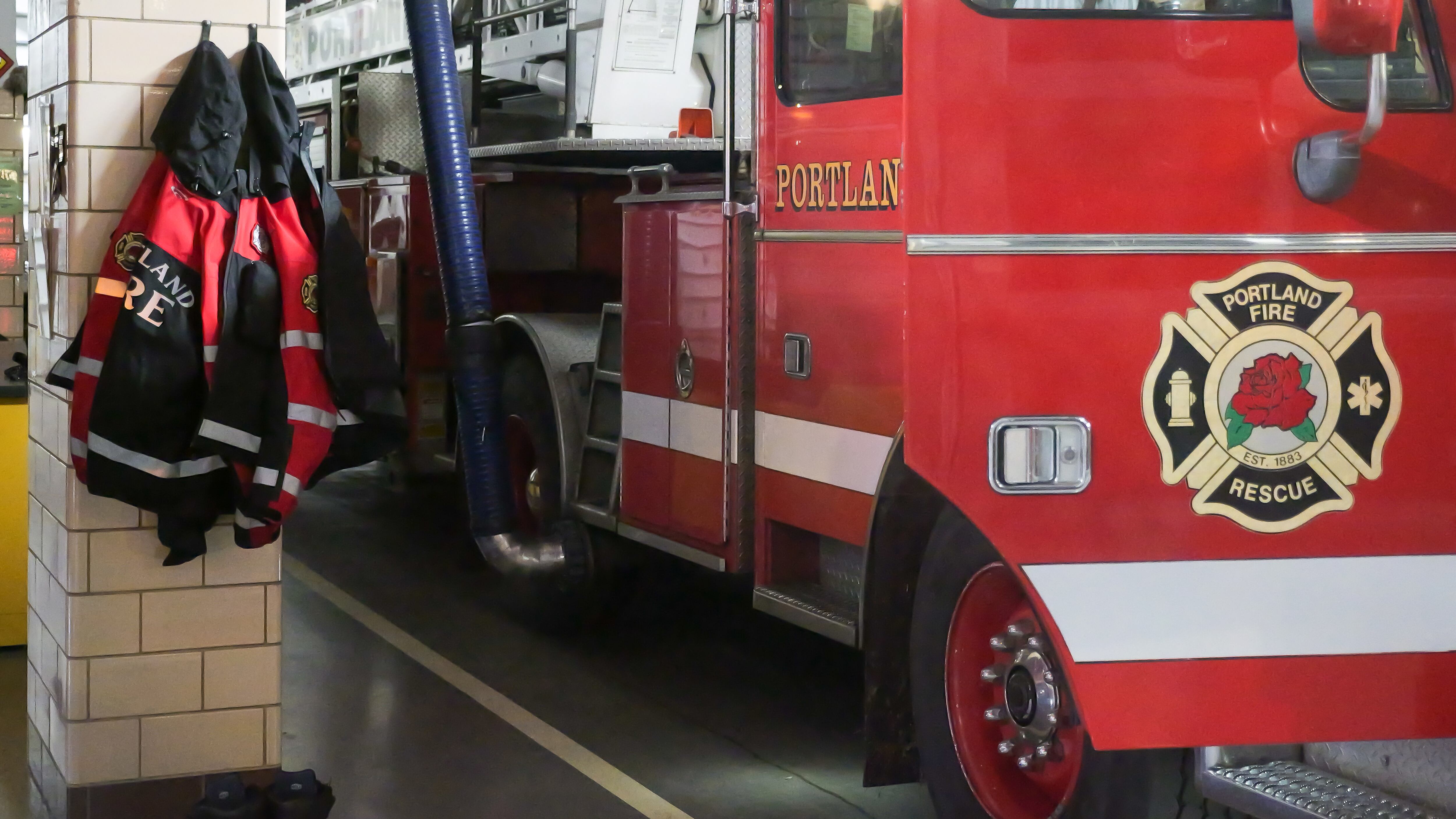A Multnomah County jury on May 30 found that Portland Fire & Rescue subjected firefighter Jason Wilson to a racially hostile work environment, ruling in his favor in one of the two claims he brought against the city in a civil trial this week.
Wilson, a 17-year veteran of Portland Fire & Rescue and a former U.S. Marine, sought $1.2 million in damages. He alleged he was repeatedly denied advancement because he is Black and faced retaliation for reporting misconduct and discrimination within the bureau.
The 12-member jury found that Wilson’s workplace was racially hostile and the city’s hiring process for a 2023 fire inspector specialist position was skewed against Wilson. But it stopped short of finding that the bureau intentionally blocked him from advancement because of his race. (Wilson had already prevailed on separate legal claims concerning violations of civil service and veterans’ preference rules under city and state law.)
The verdict is a significant rebuke to a bureau that has long been known as clannish and insular. As WW has previously reported, the fire bureau remains overwhelmingly male and white, and has repeatedly failed to hold firefighters accountable for their behavior.
“I’m grateful the jury recognized the racially hostile environment that persists within Portland Fire & Rescue,” Wilson said in a statement to WW. “An environment often overlooked or tolerated by leadership and dismissed as an individual’s ‘perceived reality.’ It was disappointing to see the city respond by attacking me and other Black firefighters instead of addressing the real issues. This verdict is a clear call for city officials to move beyond empty rhetoric and promises and take meaningful action to ensure true equity and inclusion across all bureaus.”
But how expensive this loss will be for the bureau remains an open question.
The jury awarded Wilson $275,000 in noneconomic damages. However, Multnomah County Circuit Judge Leslie Bottomly, who presided over the trial, said she would consider sanctions against Wilson’s attorneys for how they framed their case as a referendum on racism rather than a decision on Wilson’s specific circumstances. Those sanctions could reduce how much money Wilson receives.
A Portland Fire & Rescue spokesman said the bureau declined to comment.
The jury trial centered on Portland Fire & Rescue’s internal promotion practices and its use of “premium pay assignments,” which Wilson’s legal team argued violate the city charter and state civil service protections.
As first reported by WW in February 2024, Wilson claimed in his lawsuit that Black firefighters were routinely passed over for key positions, denied training opportunities, and excluded from decision-making tracks that lead to leadership roles. The lawsuit also alleged the city failed to apply veterans’ preference points during a 2023 hiring process that resulted in two white employees—one still on probation—being selected over Wilson and another Black colleague.
His legal complaint also alleged a racially insensitive and hostile work environment, citing examples ranging from a racist rant by a lieutenant fire investigator in a union web forum about Black Lives Matter, Breonna Taylor and George Floyd, to a senior staff member making racially insensitive jokes about Black women and children to Wilson.
The final day of testimony in the two-week trial was tense. Wilson, the last witness to take the stand, said fire bureau leaders left him with little recourse outside the legal system—and had even advised him to “get an attorney.”
“We’re here because I had no other choice,” Wilson said on the stand, adding that he and his Black colleagues were routinely blocked from advancement. “We are here because they don’t even consider us.”
Attorneys for the city pushed back immediately, saying that Wilson had mischaracterized the testimony of a fire bureau colleague.
“It is so insulting that you are trying to gaslight me and the jury,” Wilson responded, visibly agitated. He was instructed by counsel to answer the question. He stood by his assertion.
During closing arguments, Wilson became visibly emotional. His legal team consoled him as he sat at the plaintiff’s table. His family, sitting in the gallery, was also visibly emotional.
Tim Volpert, Wilson’s legal representation, told the jury the case would prove “disparate impact”—a legal theory that challenges neutral policies with disproportionate effects on protected groups. He also charged “spoliation,” arguing the city failed to preserve hiring records central to Wilson’s claim.
He asked the jury to send a message. “Show all the other Black people in the fire department that are watching this case, show them that they have some hope to break through this,” Volpert told the jury. “To break through what seems like an impossible barrier. Show them that accountability matters. That the truth matters. That Black lives, Black careers and Black dignity matter.”
City attorneys objected to the framing of that argument—and Judge Bottomly sided with them. She said Volpert’s closing argument veered into narrative and mischaracterized the case as a broader racial justice referendum. She instructed the jury to disregard the remarks.
“This argument is inappropriate,” Bottomly said. “First of all, this is not a class action involving other plaintiffs. Furthermore, it is not the jury’s responsibility to consider the message their verdict will send regarding societal issues at large. It is not a vote on whether racism is good or bad. Instead, the jury is to set aside emotion and decide only whether Mr. Wilson’s rights were violated and, if so, whether to award damages.”
Bottomly also granted the city’s request to deny Volpert rebuttal and said she would consider potential sanctions (penalties from the judge for violating rules, court orders or legal standards) on the hostile work environment claim.
Attorneys for the city argued Wilson’s claims relied heavily on past misconduct to suggest current wrongdoing. They denied any racial bias and defended the city’s promotion system as legal and consistent with human resources rules. They also maintained that the racist remarks of individuals did not reflect institutional policy.
The city may be required to revisit how it handles premium pay assignments and promotion policies moving forward. The city has not said whether it will appeal the verdict.
Correction: This story incorrectly reported that a jury would decide the damages. In fact, the jury has made a recommendation that a judge award Wilson $250,000. WW regrets the error.
The story has also been updated to more precisely describe the number of claims in which Wilson prevailed.

